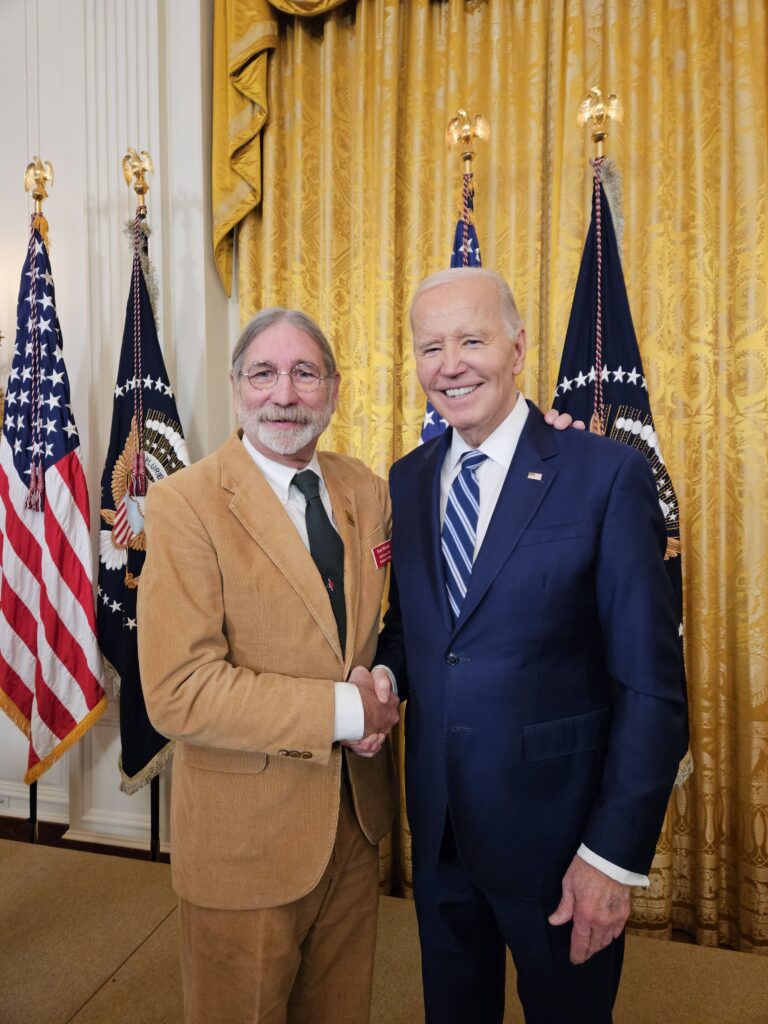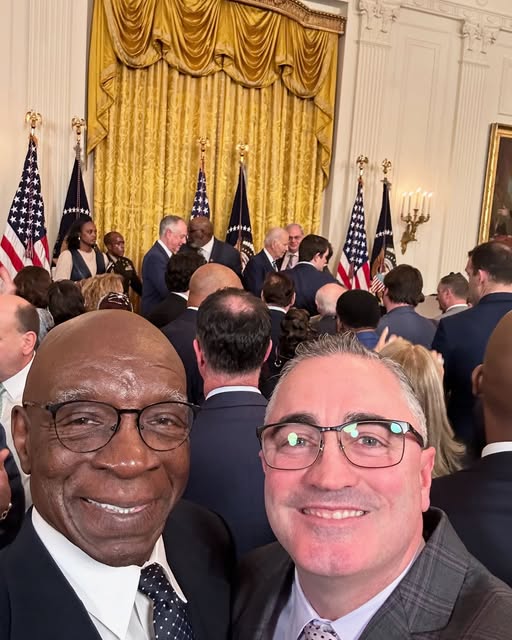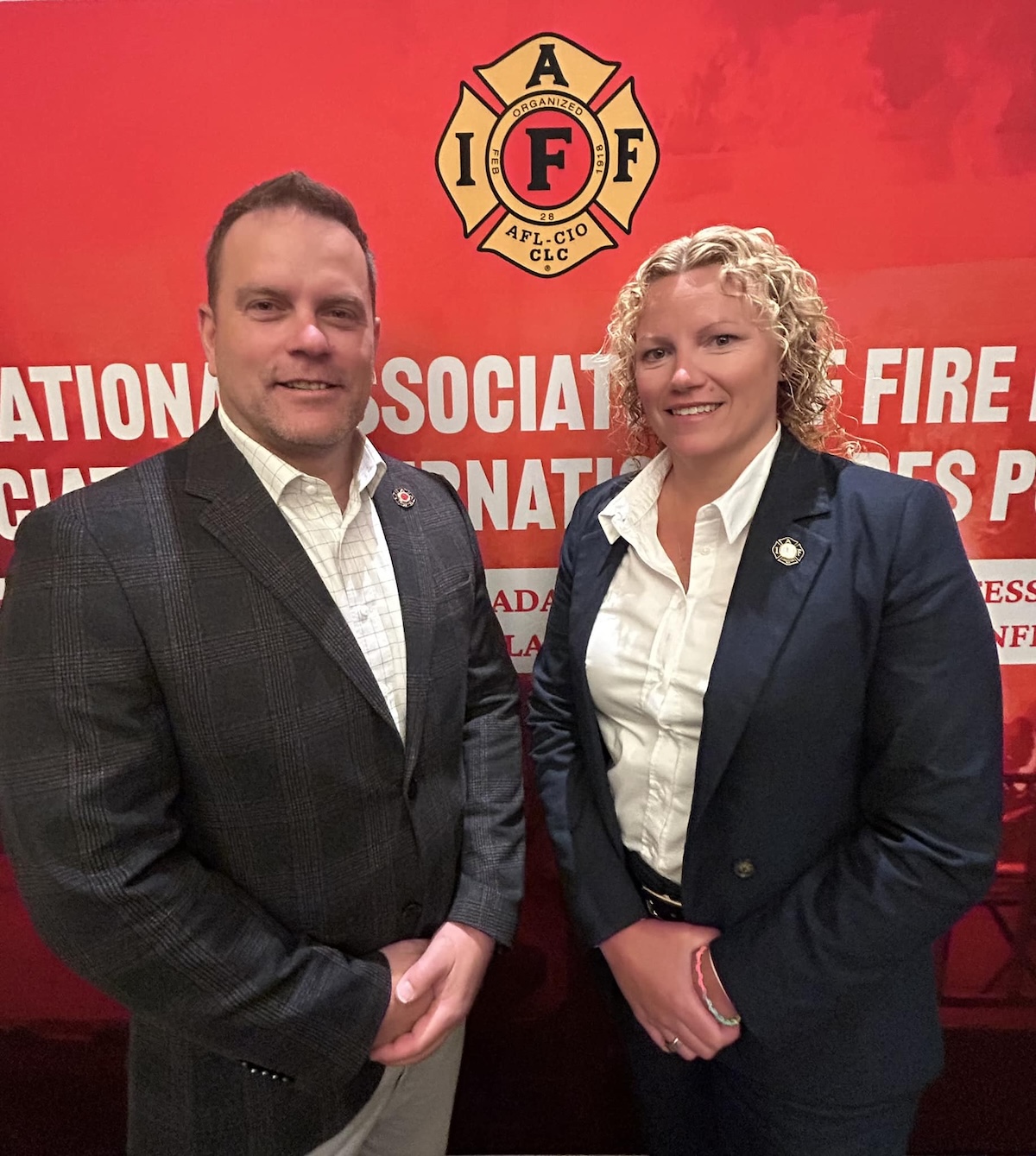The Social Security Fairness Act, which was signed into law in January 2025, allows IAFF members who paid into the system to receive their full retirement benefits without penalty. Now, just four months later, many retirees are seeing the impact firsthand.
The new law repeals the Government Pension Offset (GPO) and the Windfall Elimination Provision (WEP) — provisions within the Social Security Act that reduced or eliminated benefits for those receiving a pension from work not covered by Social Security.
The IAFF led the fight to repeal the WEP and GPO penalties through its fierce lobbying on Capitol Hill and by rallying members to join the fight. More than 50,000 fire fighters, emergency medical workers, and others urged their lawmakers to support the Social Security Fairness Act through the IAFF’s Advocacy Center, and General President Edward Kelly worked closely with Congressional leaders to get the bill to the floor in both the House and Senate.
“Few laws have such a direct impact on hardworking Americans as the Social Security Fairness Act,” Kelly said. “We took the fight to Congress on WEP and GPO, not because it was easy, but because it was the right thing to do. It doesn’t matter whether you’re a new recruit or a retired IAFF member. The IAFF never stops working for you.”
More than 2 million retired public service employees were affected at the time of the repeal. Most received a retro check (for benefits dating to January 2024) in addition to their first full monthly benefit.
IAFF retirees report the impact has been immediate.
Richard “Dick” Wurfel
Wurfel joined the fire department when he was 26, working various other jobs before then.
“I had worked in a few Social Security-eligible jobs over the course of my career as so many others have. We paid into the system, it’s only fair that we get the full benefit when the time came,” said Wurfel, a retired member of Portland, ME Local 740. “An extra few hundred dollars per month will make a big difference for me and so many others.”
After joining the fire service, he became very involved in the union and, in 1988, learned about the WEP/GPO penalties as he was helping a member with retirement compensation issues.
Wurfel, believing the penalties were unfair, and others worked to gather support from state and federal leaders for years before it finally started gaining traction in the early 2000s.
Sen. Susan Collins (R-ME) introduced the first piece of legislation calling for the repeal of the two penalties in 2003. While the bill had support in the Senate, it was never given a chance to pass on the floor. Wurfel, who retired from the job in 2010, and other retirees didn’t let the setback stop their fight.
The retiree group became increasingly organized, eventually in 2020 becoming the National WEP/GPO Repeal Task Force. All the while, by decree of multiple convention resolutions, the IAFF had ramped up its lobbying efforts to pass the Social Security Fairness Act.
Collective efforts led to the legislation gaining traction at the end of 2024. Some congressional leaders tried to stop it from coming to the floor for a vote. But after a rarely used procedural maneuver called a discharge petition was successful in the House, the legislation was passed out of Congress and eventually signed into law this January.
“I appreciate everything the IAFF and others did to make this happen. All those years of hard work were worth it,” Wurfel said. “My wife and I were good savers, but the backpay plus the extra $400 will help us maintain our savings and be comfortable in our retirement.”

Mark Munger
Munger, who helped build the IAFF Financial Corporation when it was in its infancy and previously served as Lincoln, NE Local 644 president, knows how important financial stability is, especially after retirement.
Munger paid into the system throughout his professional career with a second job. When the repeal happened, he knew he would get an increase but was pleasantly surprised to learn he was eligible for $8,000 in retro pay and more than $700 in additional benefits per month.
“This helps me and so many others live a more comfortable retirement,” Munger said. “It opens more opportunities to save money, invest, take vacations, and be better prepared for life’s unexpected expenses.”
Munger, a 2022 recipient of the IAFF Local Leadership Award, became a fire fighter and a union member in 1975 in Lincoln, Nebraska. In addition to his work as a fire fighter, in 1980, he started his own window cleaning business to supplement his fire department compensation.
He says it’s been a long time coming and appreciates everything the IAFF, General President Kelly, and others did to pass the legislation.
“This financial relief has made a meaningful difference for me, and I know that countless other fire fighters and public servants have also benefited from tireless lobbying efforts of my brother and sister union members,” he said.

Carl Jordan
Jordan, a former Canton, OH Local 249 president and current Ohio Association of Professional Fire Fighters (OAPFF) parliamentarian, did not retire from the fire service until he was 62 – in part because he knew he would be receiving reduced Social Security benefits.
“I figured I would lose about 25 percent of my Social Security,” Jordan said. “As a result of that, it extended my ability to pay off my mortgage on my home by two-and-a-half years. And it compromised the ability for all fire fighters working a second job to retire with a respectful retirement.”
Jordan joined the fire department in 1982 and served 33 years on the job. For 20 of those years, he also worked as phlebotomist when not on shift at the fire house.
“If you can find a vein while you are bouncing around in the back of an ambulance, you can do it in a lab or doctor’s office. I was a perfect candidate for the job, and it was something I took pride in,” he said.
Jordan has been passionate about the passage of the Social Security Fairness Act, even testifying before a Senate Banking Subcommittee field hearing in June 2024.
As of the publishing of this article, he was not sure yet how much money he would be receiving extra per month, but said, “Any little bit will help.’

Curtis Dunn
Dunn, Texas State Association of Fire Fighters Vice President Emeritus and an Arlington, TX Local 1329 member, was a 36-year veteran fire fighter when he retired in 2012.
Over the years, he had been the stadium medic at the Texas Rangers home games and provided first aid services to the Wet and Wild waterpark when not on shift at the fire house. Both jobs paid into Social Security.
“As I got closer to retirement, I started paying more attention to the letters the Social Security Administration was sending out with estimates of how much I would be receiving per month,” Dunn said. “Knowing that I wasn’t going to get the full amount, I decided I would wait until I was 65 before taking the benefit.”
Dunn says he’s grateful the IAFF worked so hard for years to repeal the WEP/GPO penalties as every little bit helps retirees make ends meet.
“Now, looking back, it’s hard to believe that retirees were just accepting that they were receiving less,” he said. “We deserve to get back what we paid into the system. Thanks to the IAFF, we are now getting our full benefit.”
Dunn says he transferred the first check straight into his savings account. But now that his monthly benefit is almost double, he plans to use it to do more things with his family and help them, financially, where he can.

Mark Miljak
Miljak, a retired member of San Antonio, TX Local 624, was not expecting to benefit from the Social Security Fairness Act until he received a letter in the mail.
“I was stunned,” he said. “I got a letter on March 18 from the Social Security Administration saying that I would receive a retro check and then a regular monthly check. I wasn’t sure if it was legitimate until I checked my bank account and noticed a $26,000 check had already been deposited.”
Miljak had served with the San Antonio Fire Department for more than three decades when he retired at age 57 in 2009.
He didn’t work a job that contributed to Social Security, but when his wife, Pamela, died of cancer in 2020, he was advised he might be eligible for spousal benefits. He applied, but the Social Security Administration denied his claim, saying due to the GPO, he earned too much with his pension to be eligible.
After the repeal, Miljak was deemed eligible and will receive about $1,700 per month.
“I have never been a big spender, but this money will help make my retirement more comfortable and will ensure that I have something to leave my two daughters,” he said. “I really appreciate everything the IAFF did and then President Joe Biden for signing the bill.”
Retirees with questions
Retirees eligible to benefit from the Social Security Fairness Act can find more information here.



